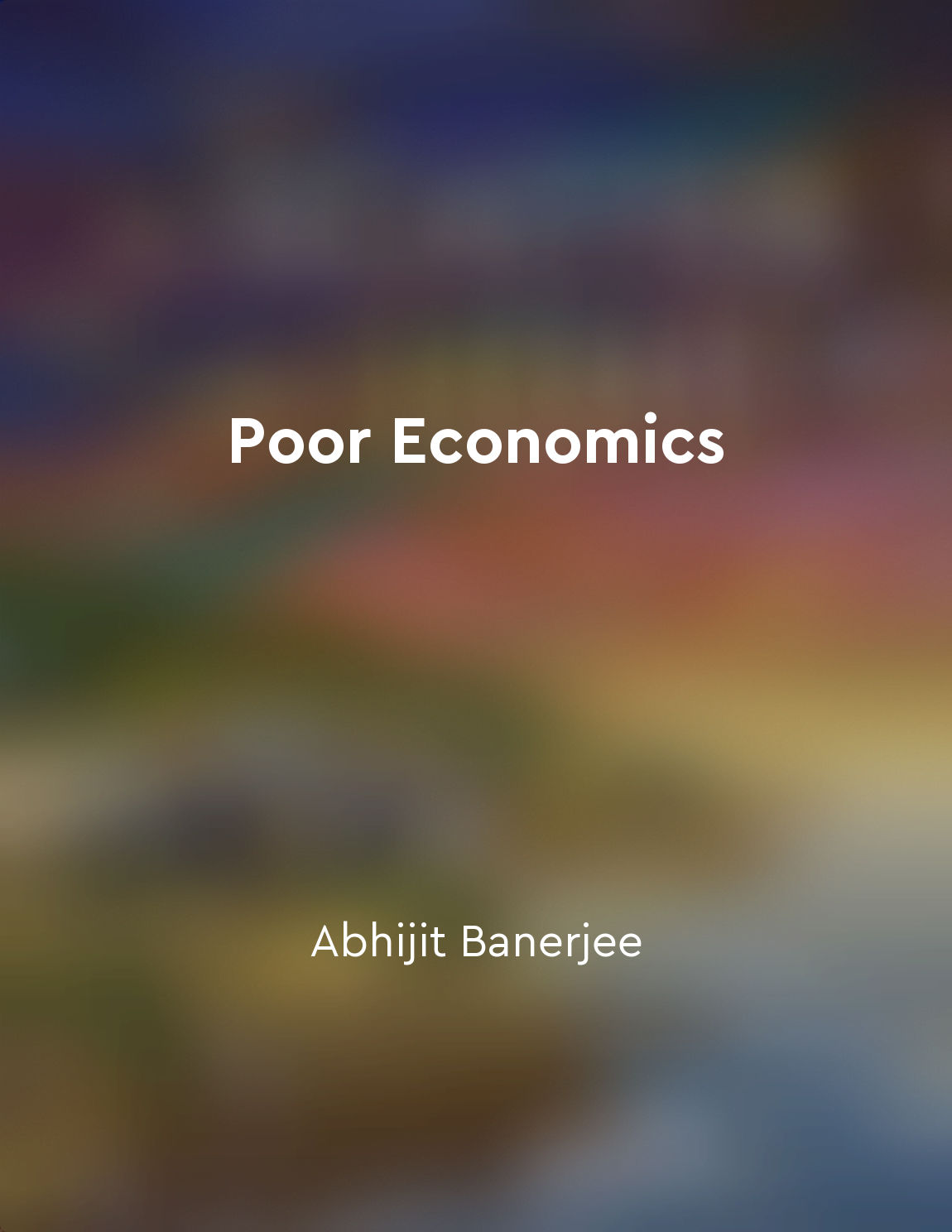Audio available in app
Intersectionality must be considered in development efforts from "summary" of From Poverty to Power by Duncan Green
Intersectionality, the understanding that people can experience multiple forms of discrimination and oppression simultaneously, is a crucial concept that must be taken into account in development efforts. Failing to consider intersectionality can result in the exclusion of certain groups from development interventions, perpetuating inequality and marginalization. When development programs do not take into account the intersecting identities and experiences of individuals, they risk overlooking the unique challenges faced by different groups within a community. For example, a project that focuses solely on providing access to education for girls without considering the additional barriers faced by girls from ethnic minority backgrounds may not be effective in addressing the root causes of exclusion and inequality. By incorporating an intersectional approach into development efforts, practitioners can better understand the complex dynamics of power and privilege that shape people's lives. This means recognizing that individuals do not experience poverty, discrimination, or exclusion in isolation, but rather as interconnected systems of oppression that are influenced by factors such as gender, race, class, ethnicity, sexuality, and disability. Furthermore, an intersectional analysis can help to identify the ways in which different forms of discrimination intersect and reinforce each other, creating unique challenges for marginalized groups. For instance, women living in rural areas may face not only gender-based discrimination but also limited access to resources and services due to their geographic location, compounding their vulnerability and exclusion. Incorporating intersectionality into development efforts requires a shift in thinking towards more inclusive and holistic approaches that recognize the diversity of experiences and needs within communities. This means engaging with marginalized groups as active participants in the design and implementation of programs, and ensuring that interventions are tailored to address the specific barriers they face.- By centering intersectionality in development efforts, practitioners can work towards more equitable and sustainable outcomes that promote social justice and human rights for all individuals, regardless of their multiple and intersecting identities.
Similar Posts

The margins challenge societal norms
The margins are the spaces on the edges, where the words are not supposed to go. They are the boundaries, the limits, the place...
Empowering women leads to economic growth
When women have the power to make their own choices, they can transform their families, their communities, and even their count...
The Dream is a seductive but dangerous myth for black Americans
The Dream is a seductive but dangerous myth for black Americans. It is a seduction because it promises equality and opportunity...

Challenging racist ideas
To be antiracist is to challenge racist ideas. To challenge racist ideas is to see racial groups as equals. To see racial group...
Agricultural practices are evolving
The way we grow our food is changing. Farmers are adapting their methods to meet the challenges of a rapidly changing world. Cl...
Men must embrace vulnerability
Men have been socialized to believe that vulnerability is a sign of weakness. Many men have been taught to suppress their emoti...
Engaging in conversations about race can be uncomfortable but necessary
Conversations about race can be tough. They can make us squirm in our seats, our hearts race, our palms sweat. But they are als...
Women should not be judged solely on their appearance
It is a truth universally acknowledged that women are too often judged solely on their appearance. Society places great emphasi...

Poor people make rational decisions based on their circumstances
The idea that poor people make rational decisions based on their circumstances may seem counterintuitive to many. It goes again...
Cultivating empathy and compassion
To cultivate empathy and compassion is to engage with the world beyond oneself. It requires a willingness to step outside of on...

